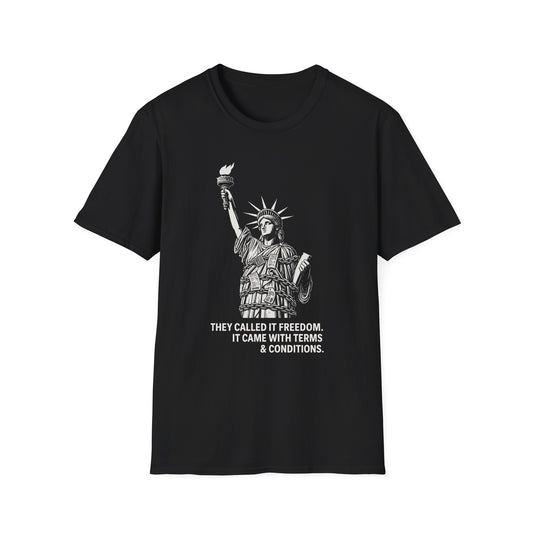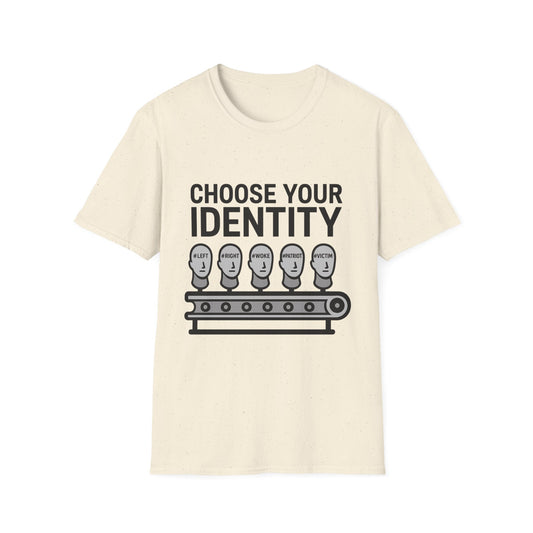
Gold vs. Digital Currency: The Battle for Real Value in a Synthetic World
Gold vs. Digital Currency: The Battle for Real Value in a Synthetic World
For most of human history, gold was truth. It was the anchor of civilization—an unchanging standard in a world of shifting empires and collapsing currencies. It didn’t need advertising or trust. It was weight, scarcity, permanence. A universal language of value that couldn’t be printed, faked, or erased.
But in today’s world, gold is quietly being erased from the conversation. Not because it lost relevance, but because it exposes the fraud of the current system. We live in an economy built on synthetic wealth—trillions of dollars created at the press of a button. Digital numbers passed through screens and traded for labor, food, and shelter, as if they were real. But they’re not backed by anything. They’re backed by belief, by obedience, by trust in a system designed to inflate, extract, and control.
In that world, gold is a threat. Because it’s real. You can’t inflate gold. You can’t print more of it when the debt ceiling breaks. You can’t manipulate it with interest rates or erase it with a glitch. It’s slow, heavy, and inconvenient. And that’s exactly what makes it powerful. It doesn’t serve the system. It challenges it.
That’s why governments don’t want you thinking about gold anymore. They call it outdated and archaic while quietly buying it in record amounts behind closed doors. China, Russia, the BRICS nations, even institutions promoting digital currency are stockpiling gold. They know what’s coming. They know fiat won’t last forever. And they know people are waking up.
Because when trust in money dies, people look for something real. Something timeless. Something they can hold. And gold has always answered that call. But as fiat collapses, the system doesn’t want you to run to gold. It wants you to run into a cage—something shiny, digital, convenient, and completely controllable.
That’s where the digital currency enters. Programmable, trackable, expirable. Promoted as the future, but engineered as the leash. Digital currency isn’t about innovation. It’s about obedience. It’s not money—it’s policy enforcement disguised as finance. And it’s spreading fast.
We’re being steered into a world where value no longer comes from scarcity or reality, but from compliance. Where your access to funds depends on your behavior. Where dissent can be silenced with a bank freeze. Where value itself becomes synthetic. In that world, gold becomes more than an asset—it becomes resistance.
The more our money becomes digital, the less it belongs to us. That’s the quiet shift no one wants to talk about. Every move toward cashless convenience feels like progress, until you realize the system it plugs you into can watch, restrict, and reshape your behavior at will. A programmable currency doesn’t just know what you spend—it decides how you can spend. It can block a purchase, flag a cause, expire your savings, and do it all within legal bounds. Because once the system controls the money, it controls the rules.
Gold draws the line. It doesn’t update. It doesn’t track. It doesn’t ask questions. It’s apolitical, untraceable, and immune to algorithms. In a world of monitored movement, gold is still freedom in your hand. Not because it’s fast or modern, but because it can’t be turned off.
That’s why the elite never abandon it. They promote innovation and digital finance publicly while moving gold in bulk behind the scenes. While the public debates payment platforms and convenience apps, the real wealth migrates to vaults. Because they understand cycles. Every fiat system in history has collapsed. Rome debased its silver coinage. Weimar Germany printed itself into oblivion. Zimbabwe, Venezuela, Argentina—every one of them replaced substance with promises. And every time, gold was the escape route.
Today, we are repeating history. The difference is, this time the collapse is being digitized. The illusion of value is being maintained through screens. People think their bank accounts hold money. They don’t. They hold promises—digits that exist only as long as the system says they do. And when that system blinks, those digits disappear.
Gold doesn’t blink. It doesn’t need a password. It doesn’t disappear in a blackout. It doesn’t ask for ID. It just is. And the more we move toward artificial value systems, the more gold reminds us what value actually means.
This isn’t about nostalgia. It’s about survival. Because if programmable money becomes the global norm, the only antidote is something unprogrammable. Something tangible. Something that can’t be rewritten with code or neutralized by policy. Gold isn’t about getting rich. It’s about staying free.
This battle between gold and digital currency isn’t just about wealth. It’s about control. Gold represents independence. CBDCs represent dependence. In a world where the average person is squeezed by inflation, tracked by algorithms, and handed convenience in exchange for privacy, the real war isn’t fought on battlefields. It’s fought on balance sheets. And most people are losing—not because they’re lazy or uninformed, but because they’ve been trained to trust the system instead of understanding it. To believe modern equals better. That safety means surveillance. That privacy is outdated. That gold is irrelevant.
But gold doesn’t care what the system believes. It doesn’t crash when markets panic. It doesn’t deflate when interest rates drop. It doesn’t depend on promises from banks, politicians, or central planners. It exists outside the system—and that’s why they want you to ignore it.
We’re being steered into a future where everything is connected—your money, your ID, your health data, your location, your beliefs. All linked through centralized infrastructure. All vulnerable to the wrong hands. And in that future, gold remains one of the only things you can truly own. No middlemen. No terms of service. No update required.
That’s why nations hoard it. That’s why billionaires quietly diversify into it. That’s why it’s dismissed publicly but guarded privately. Because if people understood its true power, they might stop feeding the system trying to control them.
The future won’t be about how much you have—it will be about what you actually own. Do you own anything outside the system? Or is your life becoming a subscription? Programmable currency represents the conversion of freedom into data. And once your life is coded, anyone with access to the keyboard can rewrite it.
Gold is a firewall against that future. It’s not flashy. It’s not optimized. But it’s real. Immune to headlines. Free from agenda. It is value—not vapor. And in a world addicted to synthetic everything, that kind of permanence is revolutionary.
You don’t need to panic. You don’t need to abandon technology. But you do need to ask yourself: when the system resets, what will I actually own?
Because for most people, the answer will be: nothing but digits.
But for those who understood the game early—who chose substance over illusion, sovereignty over ease, truth over trend—they’ll still be standing. On something solid. Something that lasts.
And it won’t be made of code.







